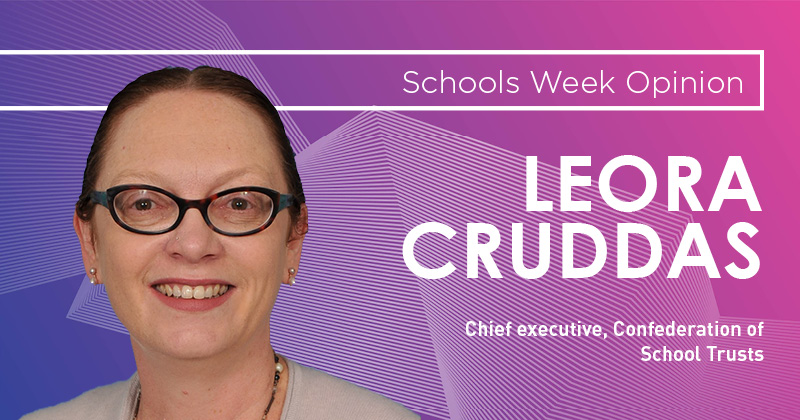Ahead of last month’s National #TrustLeaders Symposium, I attended an event organised by Satis Education looking ahead to what the coming months might bring for our education system.
In his introduction of one keynote speaker, Baroness Morris, Forum Strategy founder Michael Pain highlighted a pertinent quote she’d made referring to the criticality of involving and learning from the profession in developing policy if are to meet the challenges of the day. Never has a truer word been spoken.
Practicality and professional knowledge and experience rather than ideology and whims are essential to planning for cohesive, efficient, and impactful public services. Good policy also tends to generate more collective and collaborative effort towards its goals (rarely the case for top-down diktats).
As chance would have it, the session was hosted in a building that was once home to the National College for School Leadership (NCSL), whose gestation came under Baroness Morris’ watch and which was tasked by consecutive secretaries of state to develop policy on the big challenges facing the sector.
NCSL did this in deep consultation with the sector. Its leading executives would tour the country meeting leaders and teachers in every region. They listened, learned and honed policy ideas together, ready to present to the government as workable solutions.
This all feels very long ago now, and some won’t even remember it. As a former senior manager at the NCSL, I remember it well. School leaders not only felt policy was well-informed (especially on school leadership), but also felt a degree of ownership and participation in aspects of its subsequent delivery.
Policy informed and delivered in partnership with the profession was always going to have a head start in terms of its reach and impact. Some of these policies, such as NLEs and teaching schools, still exist in one form or another – a testament to the good policymaking that gave rise to them.
Government has been seen to be remote from the profession
Sadly, the approach has too often felt very different over the past decade or more. Government has been perceived to be more ideologically driven and remote from the profession, particularly in terms of relationships and language.
Where it has consulted, it has been accused of engaging with the same group of people and bodies, too often missing out on a wide range of diverse and informed professional experiences and perspectives.
A recent poll by the NFER asked teachers what they felt were the big issues facing the sector. Unsurprisingly, funding, retention, recruitment, accountability and ensuring enough support and resources for pupils with SEND all featured strongly. We won’t get good national strategies or policies on any of these issues right if we don’t get relationships right. That’s a fact.
Good relationships are the bedrock for the kind of dialogue that brings about good policy and, ultimately, great public service delivery. And it makes for a virtuous cycle: Good policy is relevant and timely (unlike, for example, the unfunded pay award in 2022), which sustains trust and collaboration.
That is why it’s crucial for the new government to reset the DfE’s strained relationship with the wider profession. To do so and achieve its aims it must avoid retreating into pre-existing steering groups or narrow consultations and instead genuinely reach out to the sector in a spirit of inclusive partnership.
Sector organisations and the profession will need to play their part too, encouraging inclusivity and collective partnership, and rejecting elitism or lack of openness in policy development.
This may not be the easiest or the most expedient path, but it’s the one that must be taken if we are to do right by those we serve. Only together can we find the answers to the issues that hold our school sector back and ensure the educational experience of this generation of children and young people is inspiring and full of possibility.
If the new government can do that, then the policies it develops will themselves be better designed. But more than that, they will be met by a sector refreshed by the change of tone and ready to implement them.











